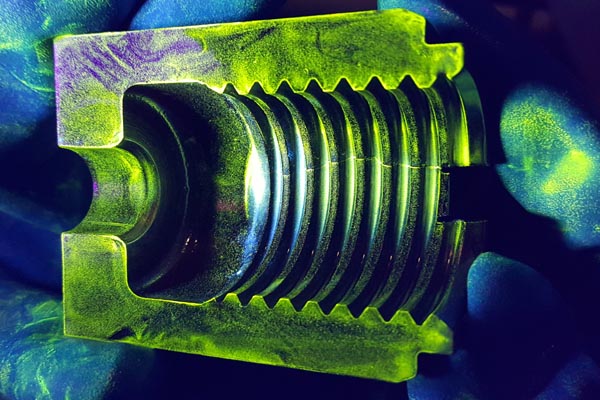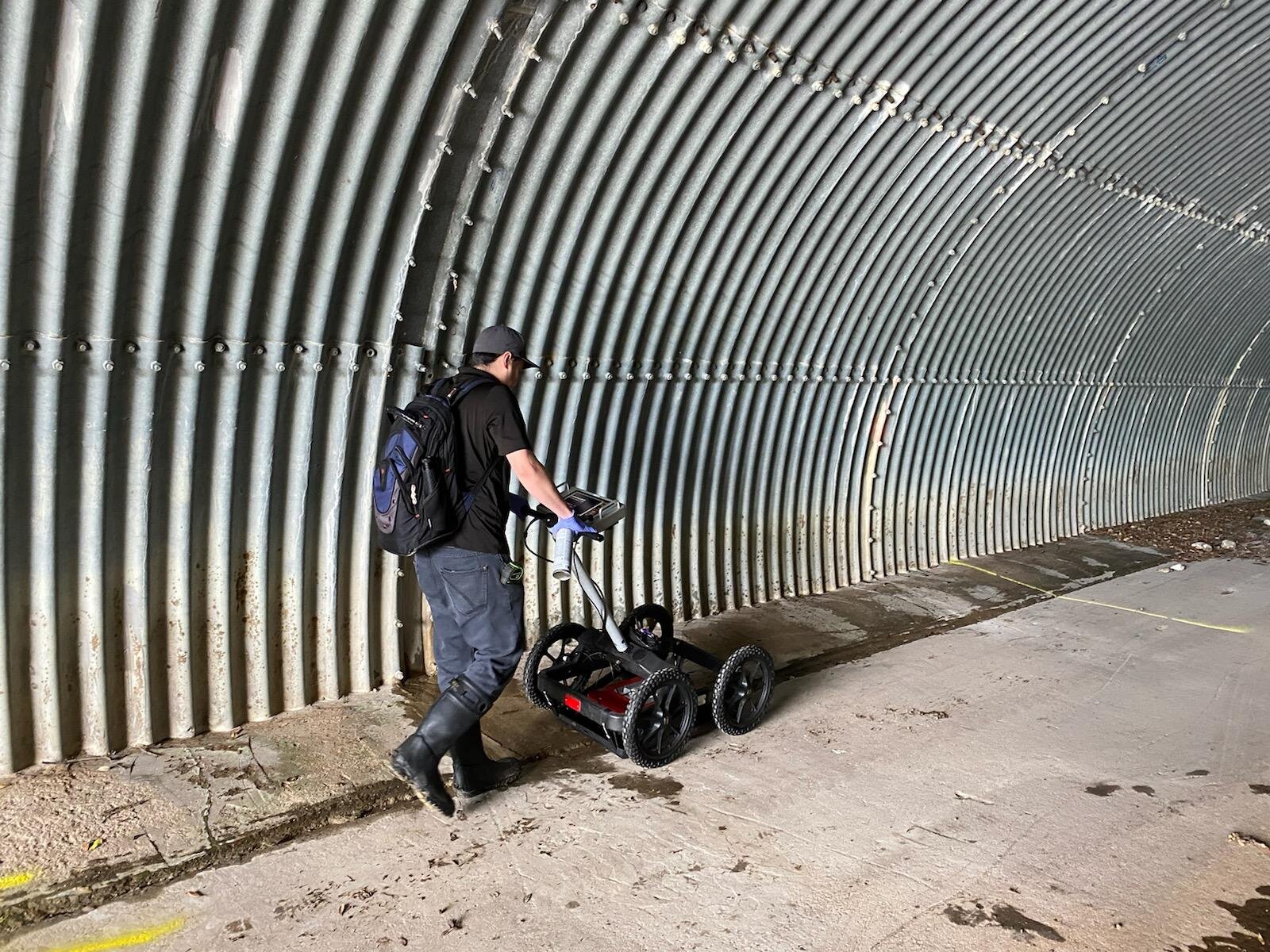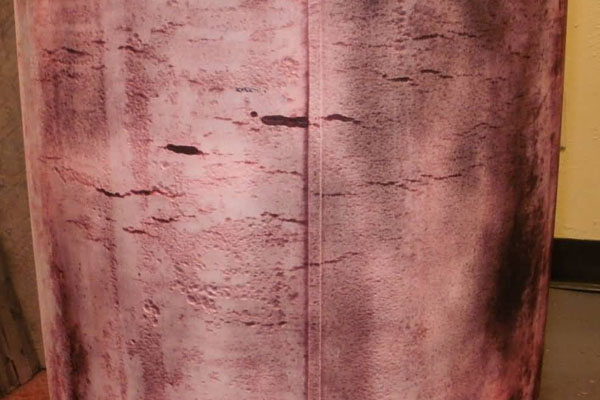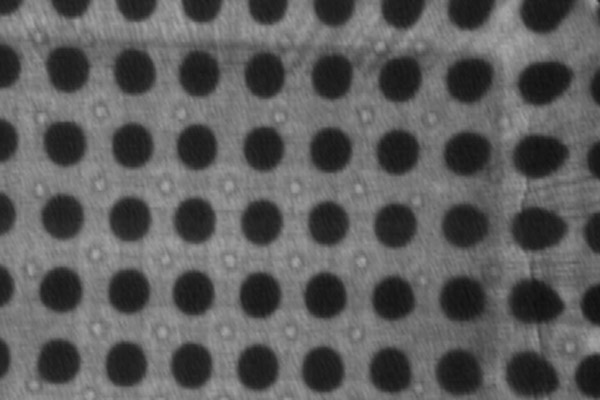MES is a ONE STOP SHOP FOR field and laboratory Non-Destructive Testing (NDT).
Our non-destructive testing (NDT) experts are backed up by years of experience combined with use of cutting-edge technology. The MES NDT team can assist you with the detection of defects, corrosion analysis, or verification of existing product. We serve a variety of industry sectors including aerospace, construction, power generation, oil and gas, automotive, rail, fabrication and mining.
Characterization
Magnetic particle testing is performed by inducing a magnetic field in a ferromagnetic material and then dusting the surface with iron particles. The surface will induce magnetic poles and distort the magnetic field in such a way that the iron particles are attracted and concentrated making defects on the surface of the material visible.
Thickness
Ground Penetrating Radar (GPR) is a geophysical method that uses pulsing radar signals to image the subsurface. It is a non-destructive method that detects reflected signals from subsurface features. It is commonly used for the detection of buried utilities and for the examination of asphalt and concrete pavements.
Composition
Dye penetrant testing is utilized to locate discontinuities open to the material surface. A highly penetrating dye on the surface enters discontinuities after a sufficient penetration time due to capillary action, and after removing the excess dye with a developing agent, the defects on the surface will be visible.
non-destructive testing
OTHER NDT SERVICES
Coating Characterization
Compositional Analysis (EDS)
Profilometer
Replication metallographic analysis
Strain Gauge
Non-destructive Testing is a wide group of analysis techniques used in science and industry to detect surface and sub-surface defects of a material, component or system without causing damage. Non-destructive testing methods are also used to inspect the quality of welds for Welder and Procedure Qualification and to detect corrosion. NDT provides an excellent means of balancing quality control, cost effectiveness and time.
Our nondestructive testing inspectors are certified to ASNT SNT-TC-1A. Level III certifications from the American Society for Nondestructive Testing (ASNT) include: Radiography (RT), Ultrasound (UT), Magnetic Particle (MT), Eddy Current (ET) and Penetrant Testing (PT). Our Level III certifications also include, Navy Nuclear NDT Examiner Certifications in: NAVSEA 250-1500-1 MT, PT, RT, UT, VT, and MIL-STD-2132 MT, PT, RT, UT to meet your industry requirements. All results are evaluated by our certified NDT Level 2 and Level 3 technicians.





